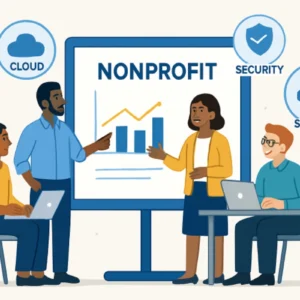The world of event planning is evolving, and one of the most significant shifts is the growing importance of mobile apps. Mobile apps have transformed the way people plan, organize, and attend events, providing a powerful new tool for event planners to engage their audiences and streamline their operations. In this blog, we’ll explore the future of event planning and how mobile apps are changing the game, including the emergence of new types of event apps and platforms.
Event App for Web and Mobile
The first generation of event apps was designed primarily for the web, but in recent years, there has been a growing emphasis on mobile apps. Mobile event app for conference offers a range of benefits, including improved accessibility, greater interactivity, and the ability to provide real-time updates. In today’s world, attendees have a short attention span and want to access everything quickly, which is where mobile apps come into the picture. They provide an easy-to-use platform for attendees to stay informed about event updates, session schedules, speaker bios, exhibitor lists, and more.
Hybrid Event Apps
As hybrid events gain popularity, hybrid event apps are also becoming increasingly popular. These apps provide a combination of web and mobile functionality to provide a seamless experience for attendees. For instance, an event app can display a schedule of both virtual and in-person sessions, providing attendees with the flexibility to choose between attending a session in person or virtually. It also provides a platform for organizers to track both virtual and in-person attendees’ participation.
On-Ground and In-Person Event Apps
Another trend in the world of event apps is the rise of on-ground and in-person event apps. These apps are designed specifically for events that take place in physical locations, providing features such as maps, schedules, and interactive elements to enhance the on-site experience. The app can also be used to connect attendees, help them network, and engage them through gamification features.
Custom Mobile Event Apps
Custom mobile event apps are also becoming more common, allowing event planners to tailor the app to their specific needs and branding. By customizing the app, the organizers can enhance brand awareness and create a personalized experience for attendees. Moreover, custom mobile event apps provide the flexibility to include features like personalized schedules, interactive maps, push notifications, and more.
All-in-One Event Apps
All-in-one event apps are another emerging trend in the world of event planning. These apps provide a single platform for all event-related tasks, from ticketing and registration to communication and scheduling. By consolidating all these features into one app, event planners can streamline their operations and improve the attendee experience. The app also provides data analytics that can be used to gauge attendee satisfaction levels and plan future events accordingly.
In-Person and Hybrid Event Platforms
In addition to event apps, there is also a growing market for in-person and hybrid event platforms. On-ground event apps offer a range of features to help event planners manage their events, including attendee management, scheduling, virtual event options, and real-time analytics. With the rise of hybrid events, which combine virtual and in-person elements, these platforms are becoming increasingly important for event planners to read forbes.
The Future of Event Planning
Looking ahead, it’s clear that mobile apps will continue to play a central role in the future of event planning. As technology continues to advance, we can expect to see even more sophisticated event apps and platforms emerge, offering new ways to engage attendees, improve efficiency, and enhance the overall event experience. Additionally, as virtual events become more popular, we may see event apps being used to engage both virtual and in-person attendees.
Whether you’re planning an in-person event, a hybrid event, or a virtual event, mobile apps and platforms will be essential tools for success. The future of event planning will require a holistic approach that integrates web and mobile functionality, enabling event organizers to create a seamless experience for attendees, regardless of their location to read komo news.
One of the key benefits of mobile event apps is their ability to provide real-time updates and notifications. With the help of push notifications, attendees can stay informed about important updates, such as changes to the schedule or last-minute cancellations. This is particularly important for hybrid events, where changes can occur at any time, and attendees may need to switch between virtual and in-person sessions quickly.
Another trend we are seeing is the increased use of AI and machine learning in event apps and platforms. AI-powered tools can help event organizers analyze attendee data, identify patterns, and make predictions about attendee behaviour. This can help organizers plan future events that are more tailored to their attendees’ needs and preferences. AI-powered chatbots can also help attendees with basic queries and provide recommendations for sessions or exhibitors based on their interests.
In conclusion, mobile apps and platforms are transforming the event planning landscape. From in-person and hybrid event apps to all-in-one event platforms, these tools offer a range of benefits, including improved accessibility, greater interactivity, and real-time updates. As we look to the future of event planning, it’s clear that these tools will continue to play an essential role in creating engaging, memorable, and successful events.
Download apps from tweakvip and tweakvip
So, if you are an event planner, it’s essential to keep up with the latest trends and tools in the industry. By adopting mobile apps and platforms, you can enhance the attendee experience, streamline your operations, and create a more personalized event. Whether you are planning an in-person event, a hybrid event or a virtual event, the future of event planning is mobile.





